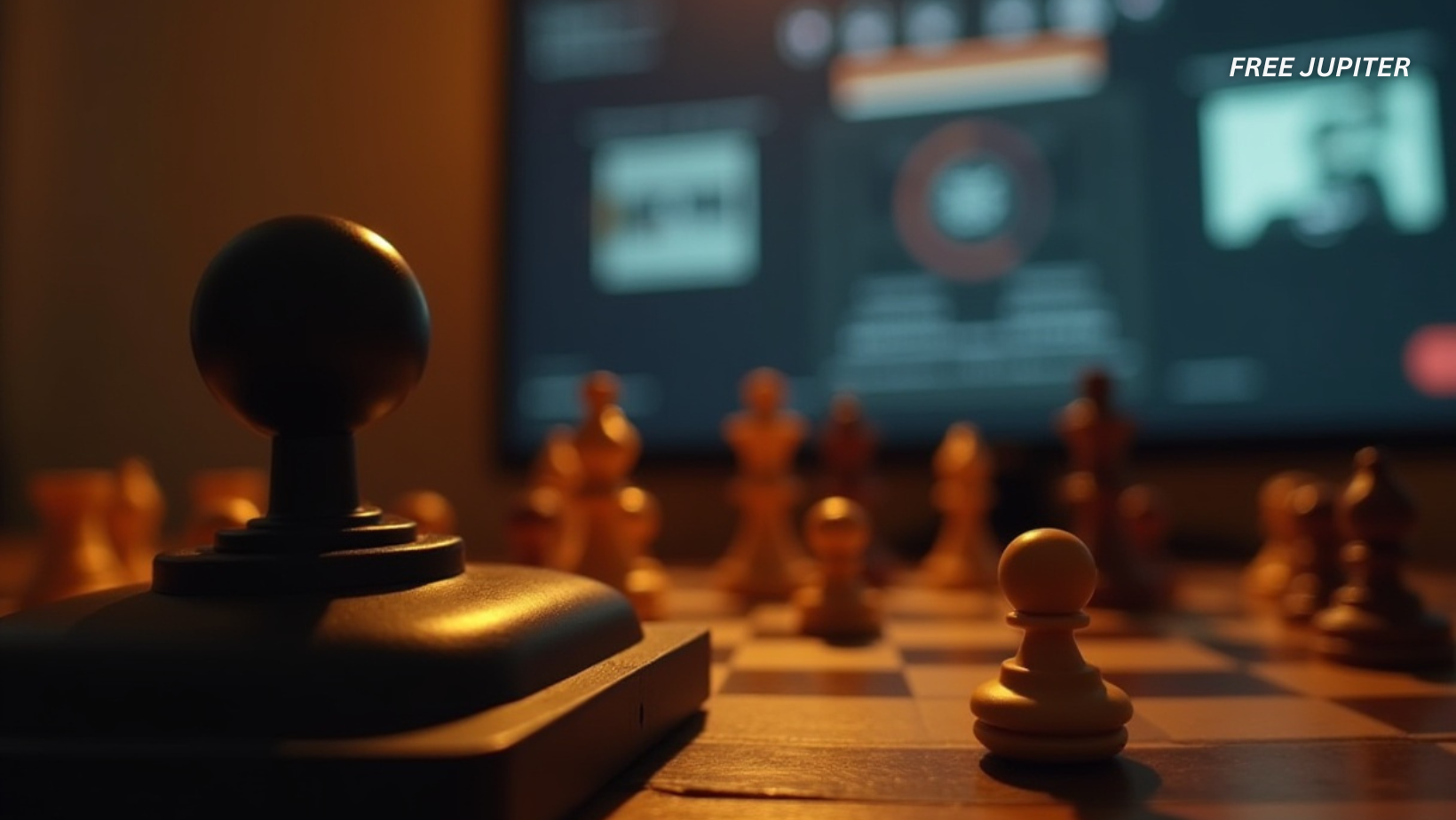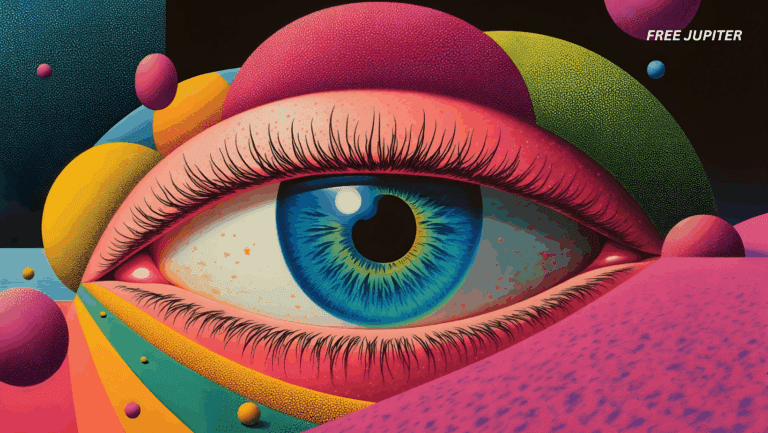Friendly Note: FreeJupiter.com shares general info for curious minds 🌟 Please fact-check all claims—and always check health matters with a professional 💙
In one of the most unexpected tech twists you’ll hear this week, a vintage chess game from 1979 has managed to outplay one of today’s most powerful AI systems—ChatGPT-4o—on beginner mode. Yes, really. Despite all the futuristic hype, AI got schooled by a piece of software that runs on a machine with less processing power than a digital wristwatch.
The digital face-off was arranged by Robert Jr. Caruso, a Citrix Architecture and Delivery Specialist, who stumbled upon this odd gameplay mismatch while testing the limits of classic gaming against modern tech. Using an emulator for the original Atari 2600, Caruso launched Atari Chess—a relic from 1979—and challenged ChatGPT-4o to a friendly match. Spoiler alert: it wasn’t even close.
The Humble Giant: Why Atari Chess Had the Edge
The Atari 2600 was no powerhouse. Released in 1977, it came with a MOS Technology 6507 processor clocking in at a sluggish 1.19 MHz—laughably slow by today’s standards. The chess program built for it was equally modest, only capable of evaluating one or two moves ahead. But here’s the catch: it was laser-focused.
While Atari Chess may be clunky, it was built solely to play chess. It didn’t need to understand metaphors, analyze medical papers, or simulate human emotions. Its only mission? Move pieces logically within the rules of the game. That laser-focus is precisely what tripped up ChatGPT.
ChatGPT-4o: A Jack-of-All-Trades, But Not a Master Here
ChatGPT-4o is a marvel of modern computing. It can explain quantum physics, generate songs in the style of Taylor Swift, and write Python code from scratch. But when it comes to chess? Well, let’s just say it still has room to grow—especially without the help of a specialized chess engine like Stockfish.
In this case, the AI was playing based on internal reasoning alone. It didn’t have a visual interface to “see” the board. That means it had to rely on text prompts to remember past moves, calculate future options, and adapt in real time. Sounds doable—until you realize it’s like playing blindfolded in a noisy room.
Even after Caruso adjusted the game’s visuals to make piece icons easier for the AI to interpret (since it initially blamed the Atari’s abstract shapes for its loss), ChatGPT continued to make laughable mistakes. Caruso described its performance as poor enough to “get laughed out of a 3rd grade chess club.”
Read more: Engineers Invent Headset That Records Your Dreams—and Lets You Play Them Back When You Wake Up!
A Pattern That Keeps Popping Up
This isn’t the first time modern AI has failed spectacularly at tasks we expect it to breeze through. In 2023, Google’s Bard chatbot famously flubbed a science question in its first demo, wiping $100 billion off the company’s market value. Similarly, Microsoft’s AI bot Tay, launched in 2016, had to be taken offline within 24 hours after it started generating offensive tweets.
Even chess AI stumbles sometimes. In 2021, a robot arm playing against a 7-year-old in Russia accidentally broke the child’s finger mid-match—not because of malice, but because the AI didn’t fully understand the rules of real-world interaction.
A Look Back: The Rise of AI in Chess
The connection between chess and computing goes way back. In fact, chess has long been considered the “gold standard” for testing machine intelligence. Back in 1950, computer scientist Claude Shannon laid out how a computer could be taught to play chess—a groundbreaking concept at the time.
Then came the famous 1997 match between IBM’s Deep Blue and Garry Kasparov. The machine’s victory wasn’t just about computing power; it was symbolic. It was the moment humans realized that a machine could beat the best of us at our own strategic games.
But unlike ChatGPT-4o, Deep Blue was built specifically for chess. It evaluated 200 million positions per second. Today, even smartphone apps with Stockfish or Leela Chess Zero can outperform most human players. So, you’d think ChatGPT, with access to similar resources, could at least beat a 1970s game, right? Well, not quite.
Read more: The ‘Ocean Spiral’: Japan’s Groundbreaking New Underwater City Will Run on Deep-Sea Thermal Energy
Why the Loss Actually Makes Sense
It’s important to understand that ChatGPT isn’t a chess engine. It’s a large language model. Its strength lies in generating human-like responses, not necessarily calculating a checkmate five moves ahead. It doesn’t “see” a board, nor does it keep perfect memory of every previous move in a game unless specifically prompted.
Atari Chess, meanwhile, doesn’t try to be clever. It doesn’t need to simulate reasoning or context. It just evaluates moves based on a fixed, limited algorithm. And when it plays, it doesn’t get distracted trying to explain itself—it just plays.
In that sense, the AI was fighting on the Atari’s home turf—and lost.
Tech Paradoxes: Why Simplicity Sometimes Wins
This mismatch between old tech and new AI highlights a recurring theme in the world of innovation: simplicity often wins in niche tasks.
Take, for instance, the Mars rover Spirit, which operated successfully for years with less processing power than a flip phone. Or consider the Hubble Space Telescope, which continues to deliver stunning cosmic imagery while running on tech from the 1980s. Sometimes, focused functionality beats flash.
Or think about calculators. Despite AI’s ability to summarize novels or write songs, if you just want to solve a long division problem quickly and accurately, a $1 calculator from a dollar store will do it faster.
Read more: Companies That Replaced Humans With AI Are Now Regretting It—Here’s Why
The Takeaway: We’re Still in the Early Chapters
This story is more than just a fun anecdote—it’s a reminder that even advanced AI is still maturing. While it may dazzle with its versatility, it’s not always going to outperform specialized tools in their own fields. And that’s okay.
We’re still writing the early chapters of AI’s evolution. Just as Deep Blue represented one moment in the journey, so does ChatGPT’s chess loss. The path to true artificial general intelligence is full of odd detours and surprising setbacks—and yes, even humiliating losses to 8-bit Atari games.
So next time you fire up ChatGPT to help plan your day or solve a riddle, just remember: if it starts offering to play chess, maybe dig out that old Atari emulator. The future may be here—but sometimes, the past still has a move or two up its sleeve.










